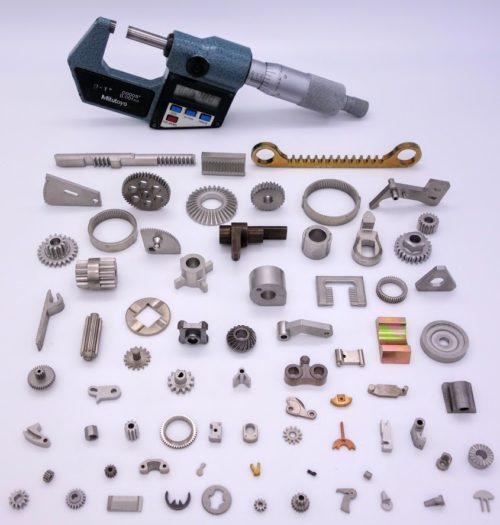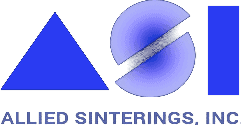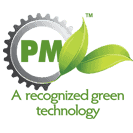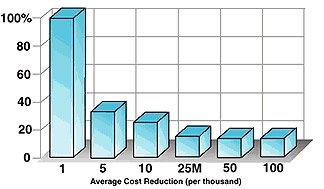What Is Powdered Metal Manufacturing?
 An Overview on Powdered Metal Parts & the Powder Metallurgy Process
An Overview on Powdered Metal Parts & the Powder Metallurgy Process
Powdered metals are alloys processed into a fine, grain-like powder through one of several processes. Primarily made from stainless steel, brass, copper, iron, or bronze, these metals can be blended with other alloys to achieve the desired material properties and characteristics for a particular application. Offering greater flexibility in material usage and mechanical properties, powdered metal parts can be highly customized and easily reproduced while yielding high-strength, cost-effective components.
Manufacturing High Strength Parts
Powder metallurgy (PM) refers to the manufacturing process by which powdered metals or metal blends are formed to desired specifications through a unique combination of heat and compression to create parts and components that offer improved strength over traditionally forged alternatives. The process is shorter than other manufacturing techniques, with primary steps including the following:
- Metals are powdered through solid-state reduction, atomization, electrolysis, or chemical treatments like oxide reduction and thermal decomposition.
- Powders are blended with other metals, alloying agents, and lubricants to reduce friction and increase fluidity while yielding a homogeneous mix that will be fed into a rigid toolset for processing.
- The metal blend is compacted into the appropriate geometry using dies, punches, hydraulic presses, or other consolidation measures.
- Compacted pieces are sintered in a controlled atmosphere using extremely high temperatures to metallurgically bond the particulates.
- Parts are subjected to secondary operations depending on the requirements of their final application.
The PM process is recognized as being environmentally friendly as it produces harmless bi-products of nitrogen and hydrogen while also limiting production waste by utilizing more than 97% of the material that enters the process.
Heat Treatments & Finishing Options
After sintering, parts may undergo additional heat treatments or finishing to increase material strength and hardness, improve corrosion resistance, boost part tolerance, enhance surface finish, and more. Secondary operations include things such as:
- Heat treating: quenching and tempering, steam treating, furnace brazing, etc.
- Machining: drilling and tapping, turning, milling, or grinding
- Impregnation: oil or resin
- Finishing: deburring, tumbling, burnishing, coating or plating, welding, etc.
The Benefits of Powdered Metal Manufacturing
The PM process offers a host of advantages over traditional metal manufacturing practices like forging or die-casting. These benefits include:
- Cost-effectiveness: PM reduces energy consumption, improves material utilization, and contains fewer steps than other manufacturing approaches, all of which help lower the impact on the bottom line by trimming costs up to 70%.
- Higher degree of customization: From the creation of unique alloy and lubricant blends designed to meet the material properties of a specific application to the ability to easily produce complex geometries like irregular curves and radial projections, key-ways, splines, counter bores, bosses, axial projections and more, PM allows for greater part customization than other metal manufacturing methods.
- Minimal machining requirements: With a superior ability to achieve close tolerances, less machining is necessary to produce a final product.
- Superior surface finish: Net-shaping and tolerance adherence contribute to a reduction in machining needs, which in turn improves surface finish.
- Repetitive accuracy: The process is suited to moderate- to high-volume production with excellent repetitive accuracy.
- Materials can be further tailored: Secondary operations allow components to undergo any additional treatments necessary to draw out the material properties most critical for an application’s success, like ductility or hardness.
Custom Powdered Metal Parts From Allied Sinterings
Powdered metal parts provide many advantages that improve part quality and uniformity, shorten production times, and cut down project cost over other manufacturing methods. Allowing for extensive customization and providing repetitive accuracy, powdered metal parts are appropriate in various applications.
At Allied Sinterings, Inc., we apply state-of-the-art powered metal technology to the manufacturing of assemblies, sub-assemblies, medical devices, tools, circuit breakers, and more using custom-blended and brass powders, copper-infiltrated materials, steel, and copper steel. With three sintering furnaces and 42 high-precision presses, an in-house tool room, and a complete tumbling/finishing department, our environmentally controlled facility can manufacture precision parts with outside diameters up to 1.25″, heights up to 1″, and tolerances of ±0.001″.
For more information on custom powdered metal parts or our PM capabilities, contact us today.




